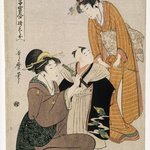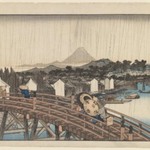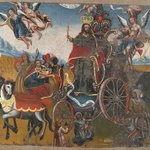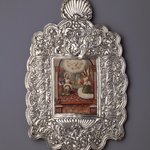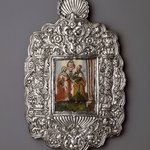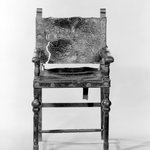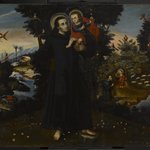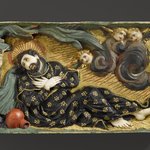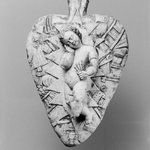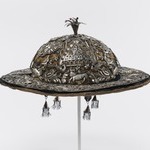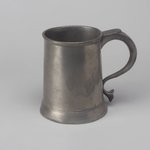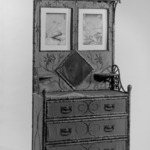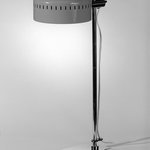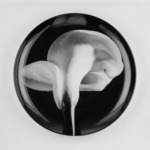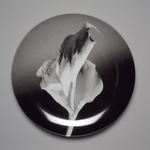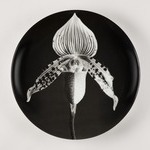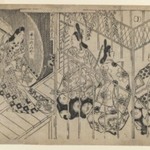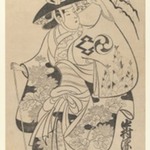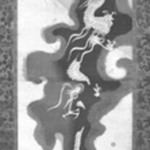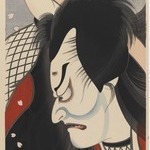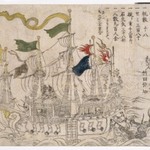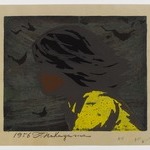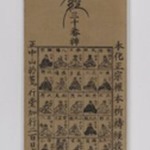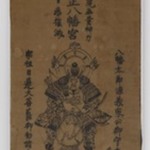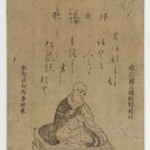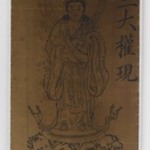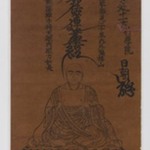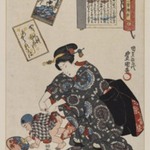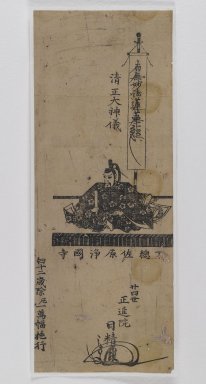
God of Kiyomasa
Asian Art
Ed Wiener was an important New York modernist jeweler who had a store named "Arts and Ends" on West Fifty-fifth Street. The store's proximity to the Museum of Modern Art was perhaps not accidental: Kramer's jewelry was especially responsive to the art of such important modern masters as Alexander Archipenko, Pablo Picasso and Alexander Calder. Kramer claimed, however, that the main influence on his work was jazz, and he often used musical metaphors when speaking of his designs.
MEDIUM
Woodblock print
DATES
18th century
PERIOD
Edo Period
DIMENSIONS
10 3/8 x 4 in. (show scale)



COLLECTIONS
Asian Art
ACCESSION NUMBER
1995.182.2
CREDIT LINE
Gift of Jeffrey Haddow
MUSEUM LOCATION
This item is not on view
CAPTION
God of Kiyomasa, 18th century. Woodblock print, 10 3/8 x 4 in. Brooklyn Museum, Gift of Jeffrey Haddow, 1995.182.2 (Photo: Brooklyn Museum, 1995.182.2_IMLS_PS4.jpg)
IMAGE
overall, 1995.182.2_IMLS_PS4.jpg. Brooklyn Museum photograph
"CUR" at the beginning of an image file name means that the image was created by a curatorial staff member. These study images may be digital point-and-shoot photographs, when we don\'t yet have high-quality studio photography, or they may be scans of older negatives, slides, or photographic prints, providing historical documentation of the object.
RIGHTS STATEMENT
No known copyright restrictions
This work may be in the public domain in the United States. Works created by United States and non-United States nationals published prior to 1923 are in the public domain, subject to the terms of any applicable treaty or agreement.
You may download and use Brooklyn Museum images of this work. Please include caption information from this page and credit the Brooklyn Museum. If you need a high resolution file, please fill out our online application form (charges apply).
The Museum does not warrant that the use of this work will not infringe on the rights of third parties, such as artists or artists' heirs holding the rights to the work. It is your responsibility to determine and satisfy copyright or other use restrictions before copying, transmitting, or making other use of protected items beyond that allowed by "fair use," as such term is understood under the United States Copyright Act.
The Brooklyn Museum makes no representations or warranties with respect to the application or terms of any international agreement governing copyright protection in the United States for works created by foreign nationals.
For further information about copyright, we recommend resources at the United States Library of Congress, Cornell University, Copyright and Cultural Institutions: Guidelines for U.S. Libraries, Archives, and Museums, and Copyright Watch.
For more information about the Museum's rights project, including how rights types are assigned, please see our blog posts on copyright.
If you have any information regarding this work and rights to it, please contact copyright@brooklynmuseum.org.
RECORD COMPLETENESS
Not every record you will find here is complete. More information is available for some works than for others, and some entries have been updated more recently. Records are frequently reviewed and revised, and we welcome any additional information you might have.
